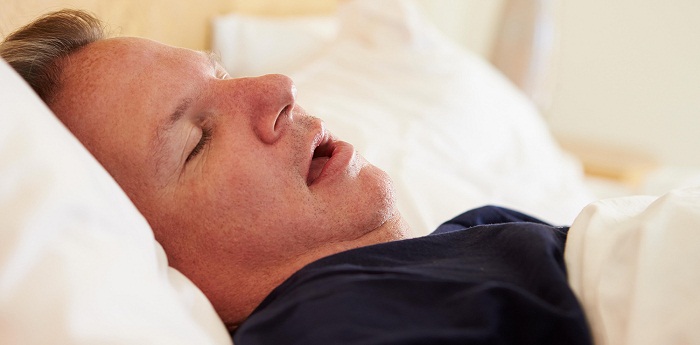Why you should NEVER sleep with your mouth open

With no bacteria to fend off the rising acid levels, tooth erosion and decay can begin throughout your slumber.
The research helps support the observations that dentists have, which is that open-mouthed sleepers have higher rates of tooth decay.
Any tooth decay that occurs tends to be at the back of the mouth as it seems to get drier than the rest of the mouth.
Patients with asthma and obstructive sleep apnoea often breathe through their mouths at night.
Normally, the PH balance, a measurement of acidity or alkalinity, of the mouth is a neutral level of 7.7.
But, according to the study published in the Journal of Oral Rehabilitation when sleeping with your mouth open the PH balance changes to become mildly average 6.6.
And it some cases, the levels rose to a whopping 3.6 on the scale, which is high enough to erode tooth enamel and is the equivalent of having an orange or fizzy drink before bed.
Research revealed that men are more likely to be affected as almost a third breathe through their mouths compared to just five per cent of women.
Joanne Choi, a sleep researcher at Otago University in New Zealand, created a chip which can be attached to your teeth at night.
Then she asked 10 volunteers to sleep with nose clamps so she could study their acidity levels and sent the data back to a computer.
Next, she recorded the acidity levels of the under 25-year-olds without the nose clamps and compared the results.
Ms Choi, a PhD student, said: "This study is the first to continuously monitor intra-oral pH changes in healthy individuals over several days.
"Our findings support the idea that mouth-breathing may indeed be a causal factor for dental diseases such as enamel erosion and caries."















































